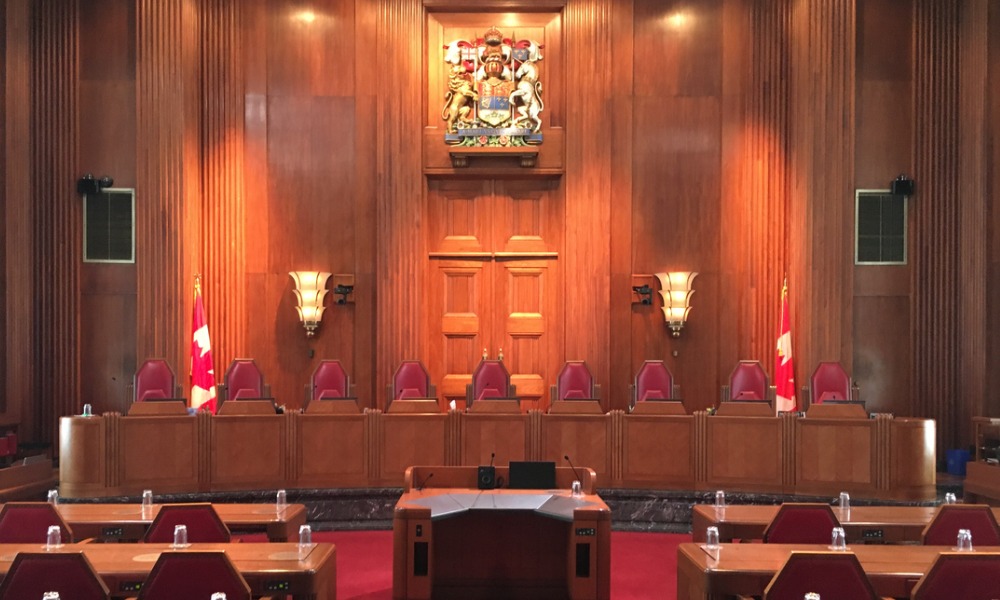License Appeal Tribunal ruling flipped gatekeeping function 'on its head' said judge

Ontario’s Division Court has reaffirmed that the onus is on an applicant for professional licensure to prove they will operate lawfully and with honesty and integrity when appealing a decision by the regulatory authority to deny licensure on that basis.
In Yarco Developments Inc. v. Home Construction Regulatory Authority (Registrar), 2024 ONSC 93, the court dealt with the test in the New Home Construction Licensing Act (NHCLA) that requires “reasonable grounds for belief that [a homebuilder’s] business will be carried on in accordance with the law and with integrity and honesty” for them to obtain a license.
The License Appeal Tribunal adjudicator had flipped the onus and found that it was up to the registrar to prove that the applicant fell short of the requirement to confirm a registration denial on appeal. The decision has wide application as similar provisions exist in 70 other Ontario statutes and regulations.
The decision confirms that regulators have “robust gatekeeping powers” to deny licenses to professionals whose past and present conduct raises the question of whether they will operate with integrity and honesty, says Jordan Stone, a partner at GlickLaw, and his practice focuses on professional regulation and discipline.
The decision is “a reaffirmation and a clear direction from the courts on how you need to approach these cases,” says Stone. “The court really emphasized the importance of public protection, of consumer protection, and that it's very critical for regulators to be able to have a robust gatekeeping role when they are considering whether or not individuals have sufficient integrity and honesty to join the profession.”
Under the New Home Construction Licensing Act (NHCLA), those looking to build and sell houses in Ontario must be licensed with the Home Construction Regulatory Authority (HCRA). When Yarco Developments applied to renew its homebuilder license, the HCRA told them it planned to deny it because its sole owner had been convicted of 22 counterfeiting and credit card fraud offences. Yarco appealed to the LAT, which found the evidence provided reasonable grounds to believe the business would operate within the law and with integrity and honesty, as required under s. 38(1)(b)(iii) of the NHCLA. According to the LAT, the onus on appeal is on the regulatory authority’s registrar to demonstrate that the license should not be renewed under the provision.
The Attorney General of Ontario intervened in the appeal, arguing that the LAT’s interpretation of the provision contradicts the prevailing interpretation of other “gatekeeping legislation” and that the decision could affect the regulation of a wide range of professions, businesses, and products in the province.
According to the Divisional Court's decision, Yarco’s owner had been convicted of “the largest counterfeit operation in Canadian history,” distributing between $400,000 and $500,000. He had followed this up with a spree of credit card fraud, using ATMs to pull data from debit cards and extract money from customers' bank accounts. While under the NHCLA, criminal convictions may be relevant in determining whether there is reason to believe a business will operate legally and with integrity and honesty, the LAT said that a criminal record, on its own, may not prevent an applicant from getting a license.
Most Read
In the LAT adjudicator’s view, Yarco’s owner had turned his life around, and his brief criminal past was 15 years behind him. He also had a record of financial responsibility and was forthcoming in his testimony about his criminal background.
The adjudicator found the registrar failed to show the company and its owner would not be financially responsible. And they said the registrar had failed to discharge its onus, under s. 38(1)(g), to prove, on a balance of probabilities, that granting the license was not in the public interest.
Justice Sally Gomery found that the adjudicator erred in his interpretation of s. 38(b)(iii). The adjudicator had incorrectly focused on his view of the literal meaning of the provision rather than “the text in the context of the statutory framework as a whole and with due consideration to the objects of the New Licensing Act.” In isolating the text, the adjudicator could not find the meaning the judge found.
The adjudicator’s interpretation of the onus requirement in s. 38(1)(b)(iii) – that the onus was on the registrar to prove Yarco would not operate lawfully and with integrity and honesty – was also incorrect, found Gomery. “This has no support in any other interpretation of licensing regimes and has the effect of flipping the gatekeeping function on its head.”
Gomery said the correct reading of s. 38(1)(b)(iii) of the NHCLA is that it allows the registrar to deny registration “when it believes, based on objective, compelling and credible information about the applicant’s past and present conduct of officers, directors, and other interested parties, that the applicant will not conduct itself in accordance with the law and with integrity and honesty.” When notified that the registrar intends to deny registration based on this provision, the applicant may seek a hearing to present evidence in their favour, but this does not impose an onus on the registrar to prove the applicant is ineligible on a balance of probabilities standard, she said. “The onus is on the applicant to prove the non-existence of reasonable grounds for belief supporting a denial of licensure.”







